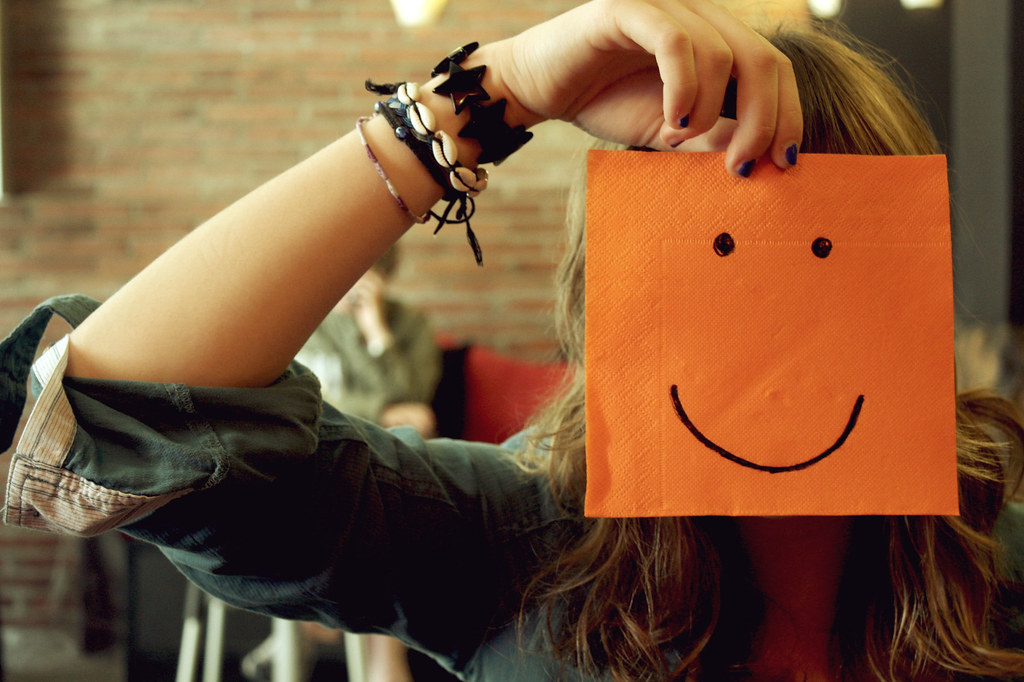Is it true that “when you smile the whole world smiles with you”?
.
In a manner of speaking, yes. By smiling we influence others to smile.
People judge things more positively while smiling, so our own smile can set off a chain reaction causing more positive encounters.
Via Choke: What the Secrets of the Brain Reveal About Getting It Right When You Have To:
The researchers found a chameleon effect. When confederates rubbed their faces, so did the student, and when confederates shook their feet, the participant did the same thing. This was true of facial expressions as well. The NYU students smiled, on average, a little over once a minute when they were with a smiling confederate and averaged only a third of a smile per minute when they were with a confederate who did not smile. We judge people and objects to be more pleasant when we are smiling in comparison to when we are frowning, so if you want your interviewer to think positively about you, try smiling. The saying is true: “when you’re smiling, the whole world smiles with you.”
I’ve posted many times before about the powerful effects of behavioral mimicry. It can:
- make people like you more and act more kind toward you.
- help close sales.
- make a man find a woman more attractive.
Smiling more is a good idea anyway:
- You’ll be more creative.
- You’ll be more attractive.
- It will improve your mood.
- Smiling can prevent bank robberies. Seriously.
- How can you improve your smile? Smile slower.
Join over 262,000 readers. Get a free weekly update via email here.
Related posts:
How To Get People To Like You: 7 Ways From An FBI Behavior Expert
New Neuroscience Reveals 4 Rituals That Will Make You Happy
New Harvard Research Reveals A Fun Way To Be More Successful




